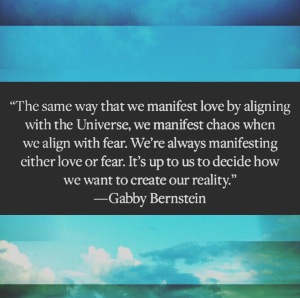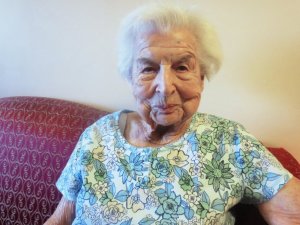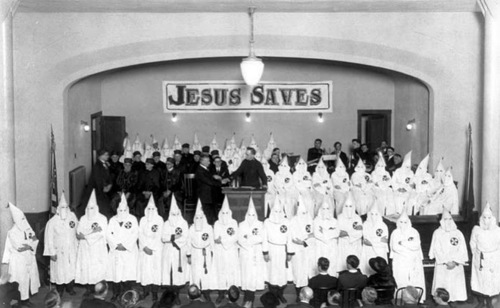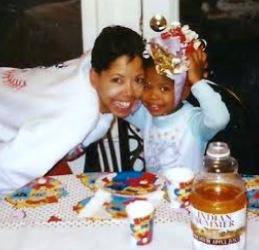I want to share two articles published for Loving Day. Not just any Loving Day, but the 50th Anniversary of the legalization of interracial marriage nationwide Loving Day. Yay! A lot has changed in 50 years. And so much has not. I think these two articles together embody that sentiment perfectly. Sometimes it takes more than one thing 🙂

The NPR post has actual audio (short and worth hearing) from the Loving v. Virginia trial and gives more details about the arguments in the case than I’ve ever encountered. The New York Times Opinion Editorial shares short stories from current day interracial couples. Find excerpts from both below. Please click the links for full articles.
While “Illicit Cohabitation” is a great pull into the NPR mixed-media piece, the line from the trial that I find most fascinating is the one about psychological evils. The pro anti-miscegenation law argument that “these statutes serve a legitimate, legislative objective of preventing sociological, psychological evils which attend interracial marriages” really got my attention. I wish I could say the statement is entirely unfounded. But that is not true. The statement is true, as is what he said next: “Intermarried families are subjected to much greater pressures and problems than those of the intra-married and that the state’s prohibition of interracial marriage for this reason stands on the same footing as the prohibition of polygamous marriage, or incestuous marriage or the prescription of minimum ages at which people may marry.” Ok, he totally lost me with polygamous and incestuous and statutory, but what came before that? That is as true today as it was 50 years ago. And with everything that’s going on around here these days, there is no denying that. That’s just the way it is right now. What I hope we will all do is realize it wasn’t the marriages that needed banning, it was the society who’s psychology told it that there was a hierarchy to maintain and a gulf so wide as to never fathom crossing it. And I hope we will see where the vestiges of those beliefs and laws still live in us and in our communities and that we will speak up for what is right and just and true. There is a lot of unraveling to be done. It shouldn’t have been so hard.

It shouldn’t be so hard still. The New York Times gathered stories that are current and honest. I’ll be honest and admit that I only read the black and white couples because, while I’m being honest, Anti-miscegenation laws were primarily put in place to prohibit black people from marrying white people. In order to preserve the master race. And to prevent tragic offspring like me from upsetting the system with our all-encompassing, theory-disproving, potentially-unifying selves by just, you know, existing. But, I digress-
I think this can all be summed up with this quote from Jennifer, a white woman married to black man since 2001: “I have learned that not only is “driving while black” a real thing, but also that riding with a black male will get you pulled over. I’ve learned to ignore disapproving looks from older white people in public places…I’ve learned that most people are tolerant, but that is different from being accepting. While we may have come a long way from the days of the Lovings, there is still a long way to go.”
To all the interracial couples before the Lovings and after the Lovings,
Thank you for your courage in the name of love while facing intense discrimination, judgement, adversity, and alienation. Important steps toward waking us up out of the illusion of race.

‘Illicit Cohabitation’: Listen To 6 Stunning Moments From Loving V. Virginia
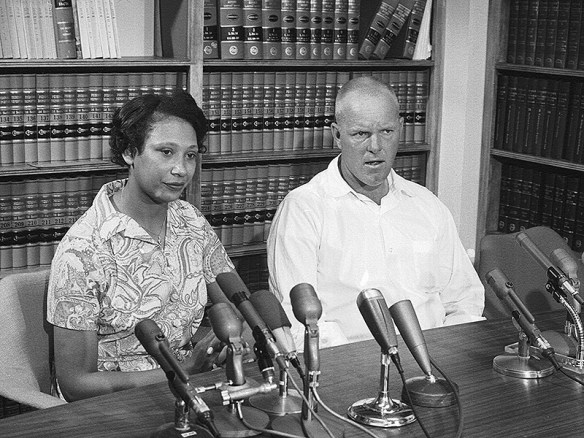
“Illicit cohabitation.”
“Psychological evils.”
“Racial integrity.”
It’s difficult to imagine how much the country’s language around race and interracial marriage has changed in the past half century.
But just 50 years ago, interracial marriage was prohibited in Virginia and 15 other states.
The Supreme Court’s landmark ruling in Loving v. Virginia declared unconstitutional a Virginia law prohibiting mixed-race marriage. The ruling also legalized interracial marriage in every state.
Bernard Cohen and Philip Hirschkop, two young ACLU lawyers at the time, took the case of the Lovings — a black and Native American woman named Mildred and Richard Loving, her white husband — all the way to the high court.
Listen to six standout moments from the trial below, transcribed by the Supreme Court in 1967:
1. Cohen and Hirschkop asked the court to look closely at whether the Virginia law violated the equal protection clause of the 14th Amendment. If the framers had intended to exclude anti-miscegenation status in the 14th Amendment, which assures equal protection under the law, they argued that it would have been easy for them to write a phrase excluding interracial marriage, but they didn’t Cohen argued:
“Equal protection for Negroes”
“The language was broad, the language was sweeping. The language meant to include equal protection for Negroes that was at the very heart of it and that equal protection included the right to marry as any other human being had the right to marry subject to only the same limitations.”
Loving, 50 Years Later
This week marks the 50th anniversary of Loving v. Virginia, the landmark Supreme Court decision that invalidated state laws restricting interracial marriage. Recently, we asked readers to share their experiences about being in a mixed-race relationship. We received more than 2,000 stories in just a few days.
Many people expressed profound ambivalence about the categories that drove antimiscegenation rules, while they described how their racial identity — or how others identified them — continued to shape their relationships and their social interactions. Some wrote about the resistance they faced from family and society, while others celebrated the particular richness of their lives. Here are some of those stories.
BARB AND MATT ROOSE
Married: Medina, Ohio, July 18, 1992

‘Luckily we were young, bullheaded and foolish.’
BARB: I’m African-American and my husband is Caucasian. We married when we were 19 and 20 years old and we’ll celebrate our 25th wedding anniversary this year. We love that we get to celebrate such a milestone as the Supreme Court verdict celebrates a milestone too.
After we got engaged (which was mainly because I was pregnant) my then-boyfriend was asked by one of his family members: “Do you really love her or are you just trying to tick your parents off?”
We learned quickly that we couldn’t answer all of the questions that our families had. Luckily we were young, bullheaded and foolish, so we decided not to let other people’s issues with our marriage become our own. We had to focus on us. This meant that my husband had to sacrifice some of his relationships for a short season in order to marry me. Thankfully, they have since reconciled.
We made it a priority to make sure that our kids had friends of all races. Early on in our lives, we hung out with another biracial couple that looked like us, so that our kids saw black moms and white dads as normal.
As a couple, we learned to be upfront with each other about race. It didn’t start that way. Attraction led to confusion. Our life experience and cultural filters created a need for us to learn each other’s ways. Like, letting him, when he was my boyfriend, into my dorm room while I was relaxing my hair. I had to let him see me being fully me. Another time when my father-in-law and I went to a country music concert with his favorite artist — that was culture shock! But, it was the music of my husband’s experience and it helped me learn more about the people in my family.
It’s taken a long time to learn this, but we believe that our relationship is more important than one of us being right. We don’t want race to ever become a wall that divides us.





